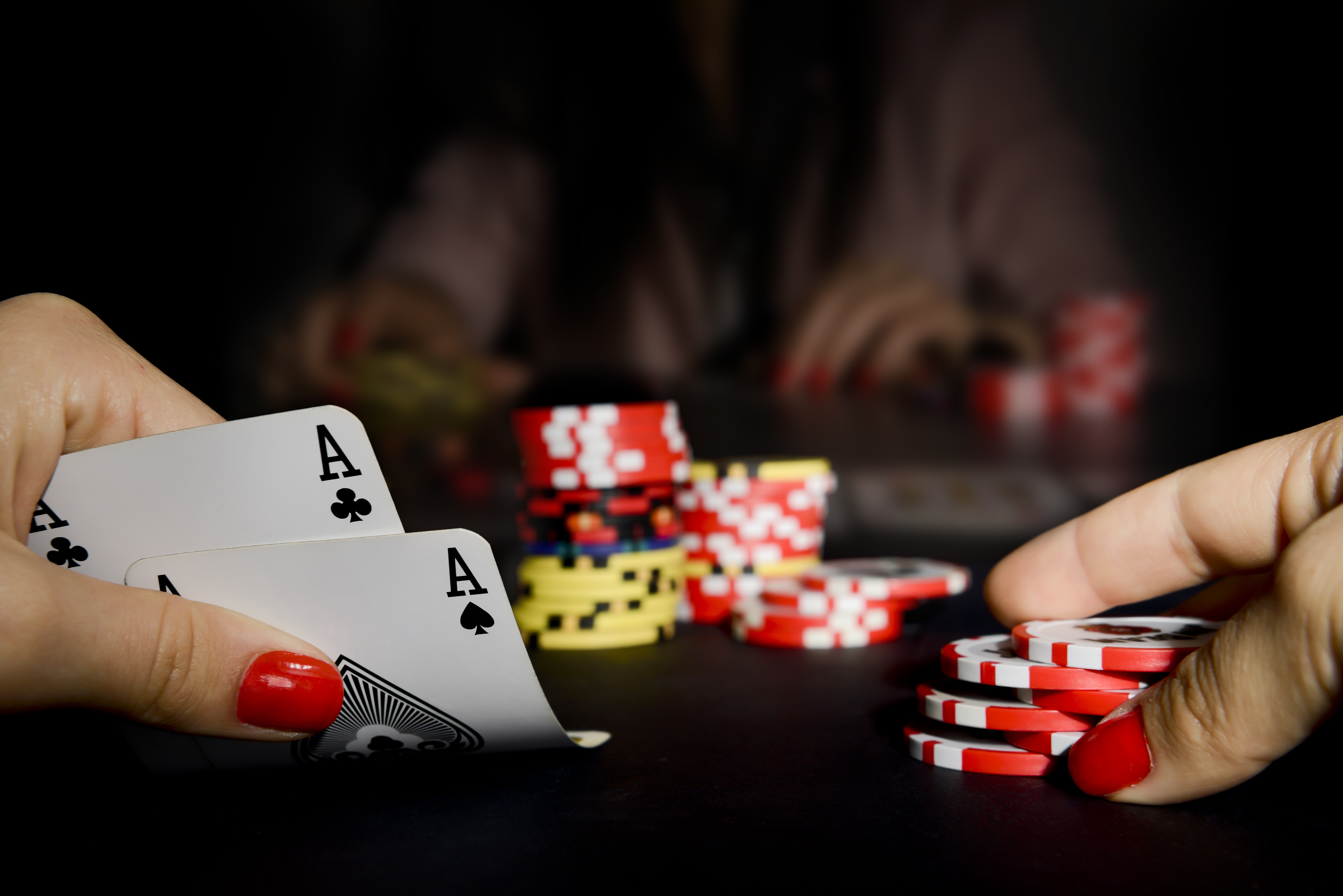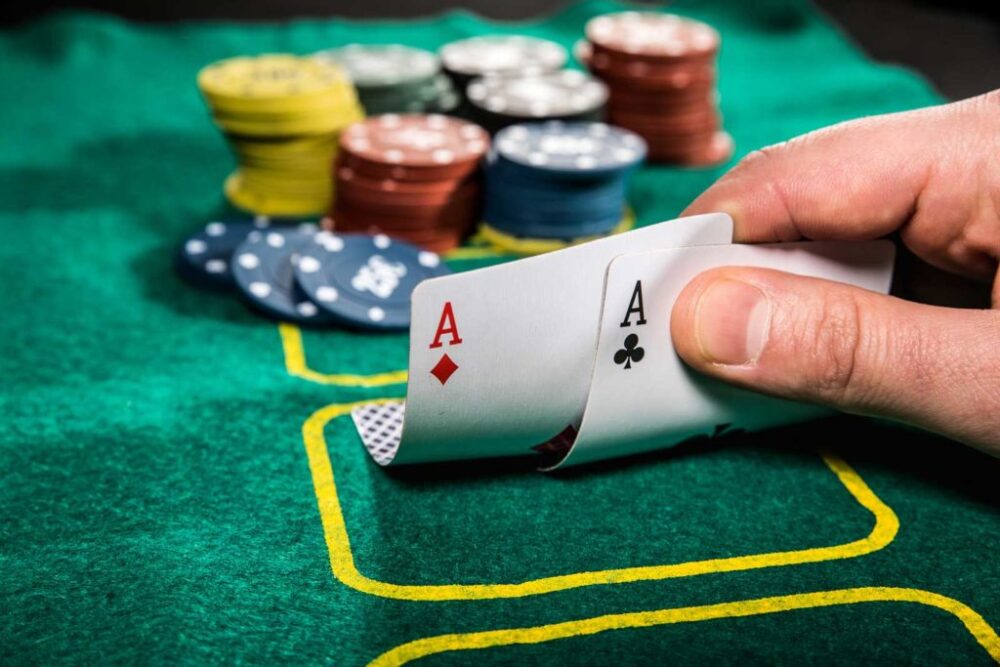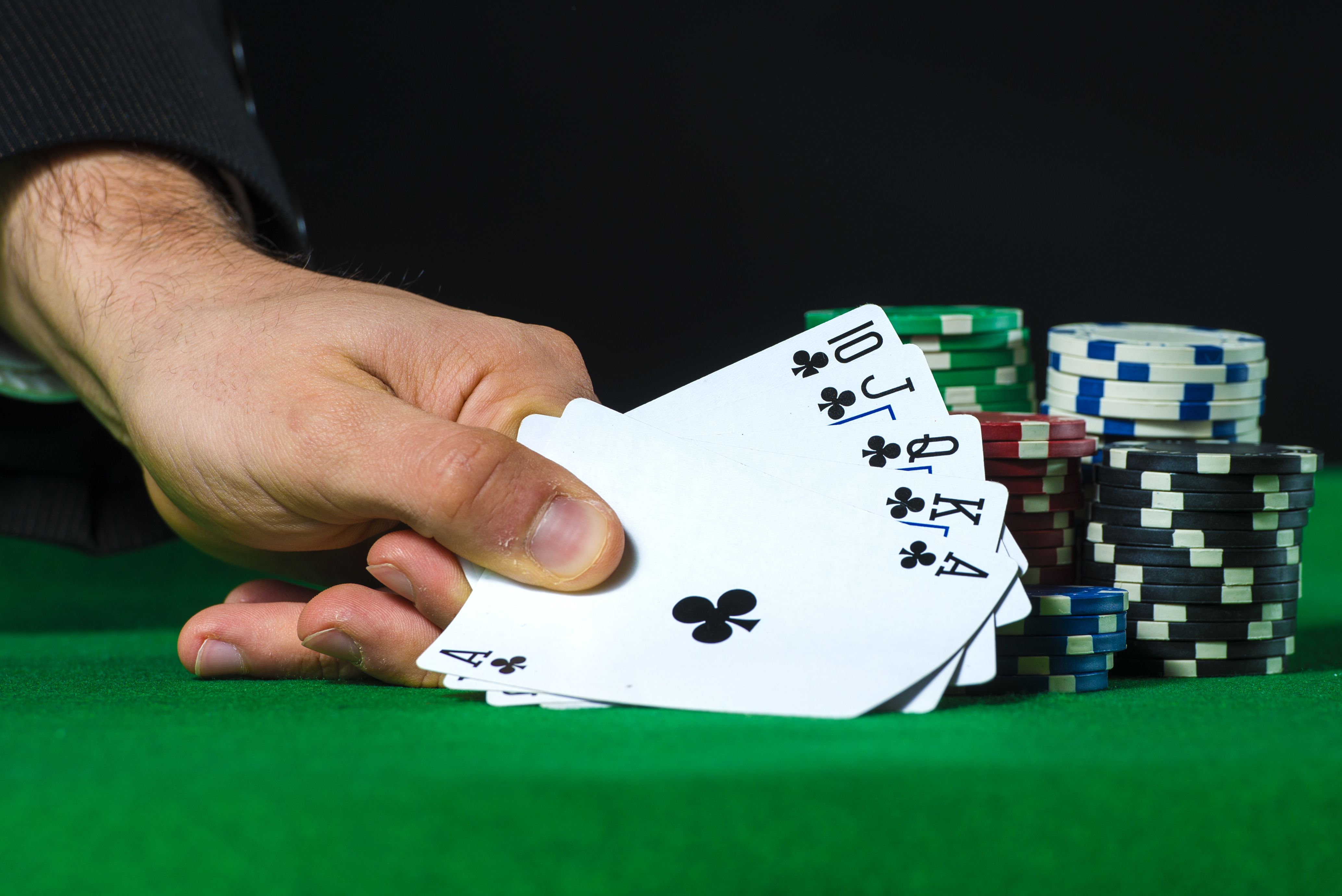Introduction
What Does Check Mean In Poker: In poker, the term “check” refers to a player’s decision to decline placing a bet during a betting round. When a player checks, it means they pass the action to the next player without adding any additional chips to the pot. Checking is only possible when no previous bets have been made in the current betting round.
The act of checking allows players to stay in the hand without committing any more chips at that moment. It is a passive action that gives players the opportunity to observe the actions of other players before making their own decision. Checking can be seen as a way to control the pot size, gather more information about opponents’ hands, or potentially set up a bluff.
The option to check adds a strategic element to the game, as players must decide when to check, bet, raise, or fold based on their hand strength, the community cards on the table, and the behavior of opponents. Understanding how and when to check is crucial for poker players to effectively navigate the complexities of the game and make informed decisions.

What is the difference between check and fold in poker?
In the event that a player has made a bet, the next player to speak can only call, raise, or fold. Here we see the basic difference between fold and check: while you can fold at any time of the game, even preflop, you can only check if no one has bet before you.
In poker, “check” and “fold” are two different actions a player can take during a betting round.
1. Check: When a player “checks,” it means they choose not to bet any chips at that moment. Checking is only possible when there have been no previous bets made in that particular round. By checking, a player remains in the hand without adding any additional chips to the pot. It allows them to pass the decision-making onto the next player.
2. Fold: When a player “folds,” it means they choose to forfeit their hand and no longer participate in the current round. By folding, a player discards their hole cards and gives up their chance to win the pot. They don’t have to contribute any additional chips to the pot, but they also can’t win any chips that have already been bet.
In summary, checking allows a player to stay in the hand without betting, while folding means giving up on the current hand and not participating further.
Can you keep checking in poker?
Checking is always allowed if no previous player has bet. You can’t check preflop unless you’re in the big blind, and nobody raises before the action gets to you. Note: Want to upgrade your poker skills?
Yes, in poker, you can continue checking as long as no bets have been made in the current round. When a player checks, it means they are choosing not to bet any chips at that moment and pass the decision-making onto the next player. If all players in the round check, then the betting round is considered complete, and the next community cards may be revealed (in games like Texas Hold’em) or the hand may proceed to the next round (in games like Stud or Omaha).
However, if any player makes a bet during the betting round, then subsequent players must either call the bet (match the amount), raise the bet (increase the amount), or fold (give up their hand). In such cases, checking is no longer an option unless a new round of betting begins.
It’s important to note that checking is only possible when there have been no previous bets made in the current round. If a bet has been placed, players must respond with a call, raise, or fold.
What is check vs bet in poker?
A check is a betting action in which a player chooses not to bet or raise when given the opportunity in a betting round. A synonym for a check is the path. In most cases, during a round of betting on a poker hand, a player can choose to check rather than bet if there are no bets currently in front of him.
In poker, the terms “check” and “bet” refer to different actions a player can take during a betting round.
1. Check: When a player chooses to check, it means they decline to place a bet. Instead, they pass the action to the next player without putting any additional chips into the pot. Checking is only possible when no previous bets have been made in the current betting round. It allows the player to stay in the hand without committing more chips at that moment.
2. Bet: A bet occurs when a player places chips into the pot as their wager. It is a proactive action to take control of the betting and potentially win the pot. The bet amount can vary depending on the specific game and betting structure. By betting, a player puts pressure on opponents to either match the bet (call), raise the bet, or fold their hands.
The decision to check or bet depends on the player’s hand strength, the community cards on the table, the actions of opponents, and the overall strategy being employed. Checking can be used for pot control, deception, or to evaluate the strength of opponents’ hands. Betting can be used to build the pot, bluff, or extract value from opponents. The choice between checking and betting is an important aspect of poker strategy and can greatly impact the outcome of a hand.

What is check and call in poker?
Calling is the mechanism used to call a bet. This is essentially matching the amount that has been put in by another player in the form of a bet or a raise. What is checking in poker? Checking is what one does if they wish to pass the action to the next player, but keep their cards.
In poker, “check” and “call” are two different actions that players can take during a betting round:
1. Check: When a player checks, it means they decline to place a bet and pass the action to the next player. Checking is only possible when no previous bets have been made in the current betting round. It allows the player to stay in the hand without committing any additional chips at that moment.
2. Call: When a player calls, it means they match the current bet that has been placed by a previous player. By calling, the player puts in the same amount of chips as the previous bettor, thereby staying in the hand and continuing to compete for the pot.
The main difference between checking and calling is that checking occurs when no bet has been made, while calling occurs when a bet has already been made by another player. Checking is a passive action, whereas calling is an active action that involves matching the bet.
The decision to check or call depends on the player’s hand strength, the betting situation, the community cards on the table, and the strategy being employed. Checking and calling are common actions in poker that allow players to continue participating in the hand without making aggressive bets of their own.
When can you not check in poker?
In nearly all cases, during a betting round on a poker hand, a player may choose to check instead of bet, if there is currently no bet before them. In essence, checking is “betting zero chips”. A player cannot check if there is a bet before them; they can only fold, call, or raise.
In poker, there are certain situations where you cannot check:
1. Pre-flop: Before the flop is dealt, the first player to act, known as the “under the gun” position, cannot check. They must either fold, call the big blind, or raise.
2. After a bet has been made: Once a bet has been made by a player, the subsequent players cannot check. They must either call the bet, raise it, or fold their hands.
3. All-in situation: If a player goes all-in and commits all their chips to the pot, the remaining players in the hand cannot check. They must either call the all-in bet, raise it, or fold.
4. Ante or blind structure: In some poker games, there may be an ante or blind structure in place where players are required to put in a mandatory bet before the hand begins. In such cases, players cannot check on the initial betting round. They must either call the blind/ante or raise.
These rules may vary depending on the specific poker variant and house rules being played. It’s important to understand the rules of the game you are playing to know when checking is allowed and when it is not.
What does it mean when a player checks in poker?
When a player checks in poker, it means they choose not to place a bet and instead pass the action to the next player. Checking is an option available when no previous bets have been made in the current betting round. By checking, the player does not contribute any additional chips to the pot at that moment and remains in the hand.
The purpose of checking is to observe the actions of other players before making a decision on whether to bet, call, raise, or fold. It allows players to control the pot size, gather information about their opponents’ hands, and potentially set up strategic plays or bluffs. Checking is an integral part of poker strategy, as players must carefully assess the situation, their hand strength, and the behavior of their opponents to make informed decisions on how to proceed in the game.
When is it appropriate to check instead of betting in a poker game?
There are several situations in which it is appropriate to check instead of betting in a poker game:
1. Weak hand: If you have a weak hand that is unlikely to improve with the community cards, checking can be a prudent move. It allows you to avoid committing more chips to the pot and minimizes potential losses.
2. Pot control: Checking can be used to control the size of the pot. If the pot is already large and you want to keep it manageable, checking can help prevent aggressive betting from opponents and reduce the risk of losing more chips.
3. Gathering information: Checking allows you to observe the actions of other players without committing to a bet. By checking, you can gain insight into the strength of your opponents’ hands based on their subsequent actions. This information can be valuable in making future betting decisions.
4. Trapping opponents: Checking can be a strategic move to induce bluffs or entice opponents into making larger bets. By checking with a strong hand, you may encourage your opponents to bet more aggressively, allowing you to later raise or call with a better chance of winning a larger pot.
5. Position: In late position, checking can be a viable option if previous players have checked as well. This allows you to see more cards before committing chips to the pot and provides more information to make informed decisions.
It is important to consider the specific circumstances of the game, your hand strength, the behavior of your opponents, and your overall strategy when deciding whether to check or bet in a poker game.
How does the act of checking in poker influence the overall strategy and gameplay of the game?
The act of checking in poker has a significant impact on the overall strategy and gameplay of the game. Here are a few ways in which checking influences the game:
1. Pot Control: Checking allows players to control the size of the pot. By checking instead of betting, players can keep the pot smaller, reducing the risk of losing more chips. This strategy is often employed when players have a weaker hand or want to limit their exposure.
2. Information Gathering: Checking provides an opportunity for players to gather valuable information about their opponents’ hands. By observing their reactions and subsequent actions, players can gain insights into the strength of their opponents’ hands. This information helps in making informed decisions in later betting rounds.
3. Bluffing and Trapping: Checking can be used as part of a bluffing strategy or to set up a trap for opponents. By checking with a strong hand, players may induce their opponents to bet or bluff more aggressively, allowing them to capitalize on the situation by either calling or raising.
4. Positional Advantage: Checking is often influenced by a player’s position at the table. Players in late position have the advantage of seeing how earlier players act before deciding whether to check or bet. This information allows them to make more informed decisions and adjust their strategy accordingly.
5. Resource Management: Checking helps players manage their resources, specifically their chips. By checking when appropriate, players can conserve their chips for situations where they have stronger hands or better opportunities to win the pot.
In summary, the act of checking in poker is a strategic move that impacts the overall gameplay by controlling the pot size, gathering information, setting up bluffs or traps, leveraging positional advantage, and managing resources effectively. It adds depth and complexity to the game, requiring players to consider various factors before deciding whether to check or bet.

Conclusion
The act of checking in poker plays a significant role in the strategic gameplay and decision-making process. It allows players to pass the betting action to the next player without making a bet of their own. By checking, players can carefully assess the unfolding situation, gather information, and adapt their strategy accordingly.
Checking serves multiple purposes in poker. It can be used as a defensive move to control the pot size, especially when a player has a weaker hand. It can also be employed as a tactical play to induce bluffs or trap opponents into making mistakes.
Furthermore, checking provides an opportunity for players to observe their opponents’ actions, betting patterns, and overall behavior, which can help in making more informed decisions in subsequent rounds.
However, it is important to note that checking is not always the optimal move. There are situations where aggressive betting or raising may be more advantageous, depending on the player’s hand strength and the dynamics of the game.
Ultimately, mastering the art of checking in poker requires a combination of strategic thinking, observation, and understanding of the game’s nuances. It is a vital tool that players utilize to navigate the complexities of poker and enhance their chances of success at the tables.










